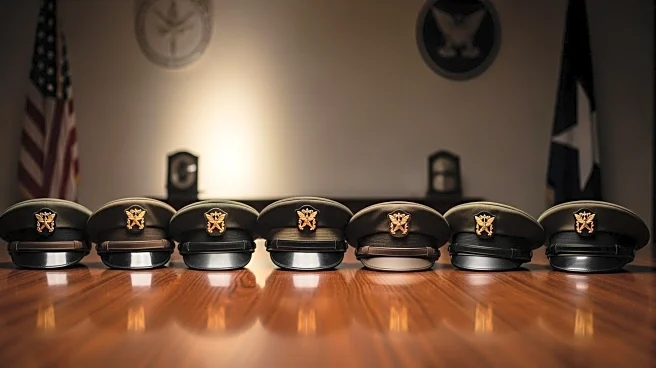What's Happening?
Seven second-generation Japanese American soldiers, known as Nisei, have been posthumously promoted to second lieutenant by the Secretary of the Army. These soldiers, former University of Hawaii ROTC cadets,
were expelled due to anti-Japanese American policies following the Pearl Harbor attack. Despite their loyalty, they were denied commissions and served in the 100th Infantry Battalion, where all seven were killed in action in Europe in 1944. The promotion rectifies a historical injustice and honors their service.
Why It's Important?
This posthumous commissioning is a significant step in acknowledging and correcting historical injustices faced by Japanese Americans during World War II. It highlights the contributions and sacrifices of Nisei soldiers, who served despite facing discrimination and internment. The recognition serves as a testament to their commitment to democracy and freedom, offering a long-overdue honor to their legacy. It also underscores the importance of addressing past wrongs and ensuring that future generations understand the complexities of wartime policies and their impact on minority communities.
Beyond the Headlines
The commissioning of these soldiers not only honors their service but also serves as a reminder of the broader issues of racial discrimination and the resilience of minority communities in the face of adversity. It prompts reflection on the ethical and cultural dimensions of wartime policies and the need for continued efforts to promote equality and justice. The story of the Nisei soldiers is a powerful example of loyalty and courage, inspiring ongoing discussions about diversity and inclusion in the military and beyond.









